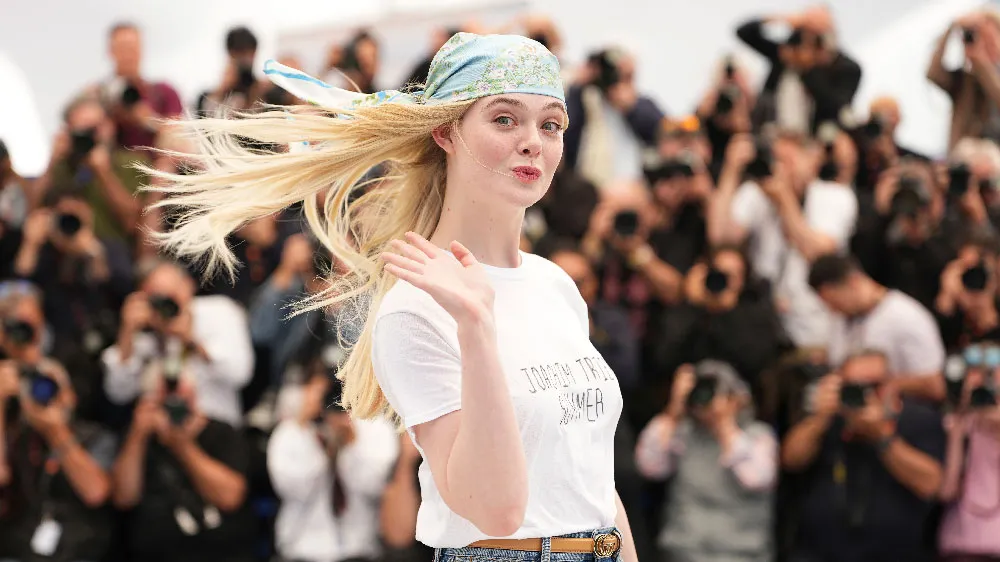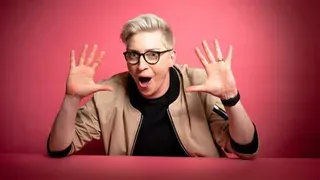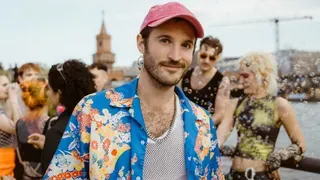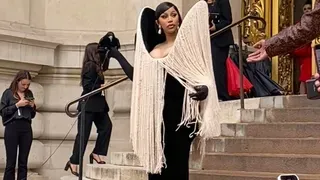June 22, 2018
Spiral
Kilian Melloy READ TIME: 5 MIN.
If America's polarization and divisions are making you anxious and glum, at least you'll know that the country is in good... or rather, dubious... company after watching Laura Fairrie's new documentary "Spiral," which looks at the ways in which French society is convulsed by similar paroxysms and - not incidentally - the tensions of the Middle East contribute to those troubles.
Antisemitism has been on the rise in Europe for a couple of decades, but in France it's gotten so bad - grenades hurled into shops, beatings in the streets - that Jews are leaving the country and relocating to Israel, encouraged by Israeli Prime Minister Benjamin Netanyahu, who has put out a call for the world's persecuted Jews to make a new life there. The film does not come out and say it, but the implication seems to be that as more people relocate to Israel, more settlers will subsequently overrun the disputed West Bank.
The Palestinians who live there, of course, see the new settlements forming and resent them - especially since, in their eyes, the new settlers bring prejudice with them, not to mention firearms. "When we harvest the olives, we see the settlers with their little kids next to them," a group of Palestinian youths tell Fairrie's camera. "With their weapons." The youths go on to exalt the land they see being appropriated before their eyes, adding, of the Jewish settlers, "They took it all."
A West Bank settler from England, however, sees things in a different light, telling the camera that he's "bringing life" to a remote land and teaching his two small daughters that Israel is a "divine-given land," which he believes has been "promised... from God to us." Later on, we hear the sentiment given voice from a settler that, "The further we build, the more we defend our territory."
But the conflict between Israel and Palestine isn't merely a local affair. Back in France, especially in towns like Sarcelles, where Jews and Muslims once lived shoulder to shoulder, resentments and fear run high on both sides, driven by events in the Middle East.
Some Jews in France feel that their community has self-segregated too much. Those on the other side of the divide are inclined to agree: "They don't mix," a Muslim man complains as he drives past a neighborhood that'd been dubbed "Little Jerusalem." "Look at the big fences. Look at the soldiers." Even as he speaks, the driver nearly gets pulled over, thanks, he says, to racial profiling.
Some French Jews try to take a broader perspective, but so doing they leave themselves vulnerable to pessimism. "We're close to a kind of madness," sighs a school teacher. A lawyer strikes a similar tone, wondering whether the future holds "A primitive tribalism or a common humanity?" The lawyer - he becomes a father by the film's end - has no plans to leave France, though he frets that, historically, Jews are the canaries in the coal mines of social and political upheaval. "When a Jewish population leaves a country," he observes, "often it's a bad sign for the rest of the population, who go on to suffer." The lawyer's words are offered in voiceover as we see footage of him on public transportation; as his words are spoken, the camera zeroes in, over his shoulder, on a young Muslim woman.
It's a tart comment, and one that will probably escape those who most need to see and understand it. Take, for instance, comedian and propagandist Dieudonn� M'bala M'bala, who got his start in comedy as one half of a duo act - the other party being a Jewish comic. Nowadays, however, Dieudonn� is pals with the likes of former Iranian president Mahmoud Ahmadinejad and right-wing French politician Jean-Marie La Pen. Dieudonn� boasts of being a "Bantou," and styles himself a fighter for free speech, but were French society to collapse into a race war, one wonders what would become of him.
Some do choose to leave France, however, and they speak openly about it for the documentary. One family departs Paris despite their children having grown up there; once in Israel, their son goes into the army, not to defend the country so much as to, in principle at least, help protect Jews throughout the world. A settler from France tells the camera that she finally feels at home in Israel, and adds that she would never go back - before going on to say that too many "foreigners" (meaning dark-skinned Muslims, evidently) are entering France. The scene directly after this listens in on a trio of black men in France who feel that white France "spits" on them.
This film is both an anthropologist's dream and a humanist's nightmare. It delineates the ways in which the human animal is driven, and deluded, by a need to secure land and a sense of safety for his own offspring, often with little consideration for anyone who can handily be labeled an "other."
If all this smells a little too much like politics in the U.S. these days, well, that's something the film picks up on, too: Amongst its images and sound bites are the chants of American white supremacists declaring, "You will not replace us!" and Trump supporters crying out, "Build that wall!"
It's easy to see how strongmen flourish in situations like this, and how purveyors of racist messages find it easy to build careers. What's not so easy is to see any reason for hope that people will, at some point, use the more sophisticated regions of their brains and stop relying so heavily on the more primitive, territorial layers lurking beneath their gray matter. "Why should I be the one behind a wall?" one settler grouses while telling another about a "terrorist" - a Palestinian teenager - who murdered a Jewish child in her bed. "When you visit a zoo, you're not in a cage."
Indeed, commentators on every side of the divide insist in this film that they are human beings, just like the other (more favored / luckier / more privileged) guy is. That's true, of course, but you also come away from this film with the depressing thought that any given human being is, at root, an animal, simply and ultimately unable to choose anything higher than the same old story of aggression, self-justification, and oppression, and all for the unconscious and unconsidered goal of genetic domination. The thing about a spiral is, after all, that there's no way out... just an accelerating trajectory into a dead end.
Kilian Melloy serves as EDGE Media Network's Associate Arts Editor and Staff Contributor. His professional memberships include the National Lesbian & Gay Journalists Association, the Boston Online Film Critics Association, The Gay and Lesbian Entertainment Critics Association, and the Boston Theater Critics Association's Elliot Norton Awards Committee.







